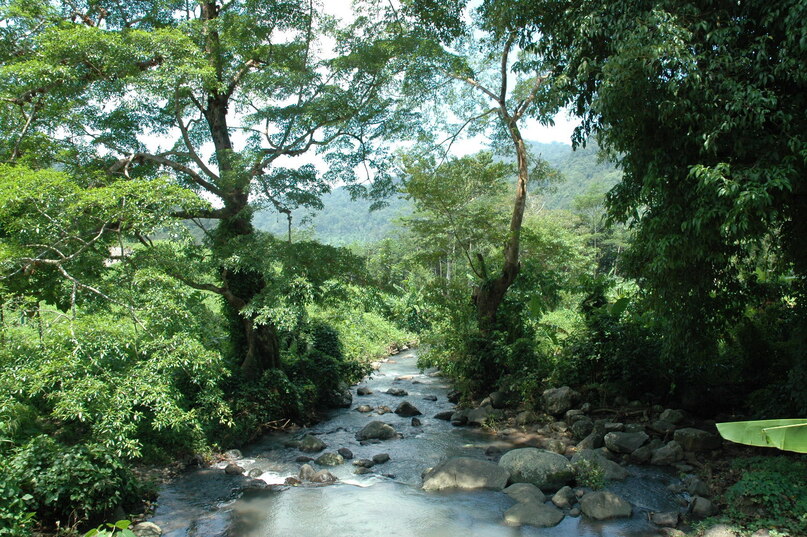Climate-change mitigation and adaptation

Well-managed tropical forests act as a vast carbon sink. ITTO encourages sustainable forest management and legal and sustainable wood supply chains. Photo: FORDA
Sustainably managed tropical forests, and their associated legal and sustainable supply chains, can be cornerstones of efforts to combat climate change and develop a more circular economy. Well-managed tropical forests act as a vast carbon sink, and sustainably produced tropical wood can be used as a renewable, low-carbon substitute for carbon-intensive materials.
Sustainable forest management can also help increase the resilience of forests and people to climate change by, for example, increasing productivity, conserving biodiversity, maintaining soils and water quality, and acting as buffers against floods, coastal storm surges and droughts. Sustainably managed forests can provide local people with additional food resources, especially during periods of agricultural shortages.
Globally, however, deforestation contributes about one-fifth of all greenhouse-gas emissions, and forest degradation also causes significant emissions. This has given rise—in negotiations under the United Nations Framework Convention on Climate Change—to the concept of REDD+ as a mechanism to encourage developing countries to reduce emissions from deforestation and forest degradation and to conserve and enhance carbon stocks through forest restoration and SFM.
Through projects, policy development and capacity building, ITTO assists member countries and communities to take measures to adapt to and mitigate climate change, such as:
- Restoring degraded forest landscapes to provide essential ecosystem services and produce timber and other forest products.
- Conserving biodiversity in productive forests and protected areas.
- Minimizing the risk of uncontrolled wildfire.
- Sustainably managing and using productive forests to increase carbon sequestration, avoid deforestation and degradation and generate decent, sustainable jobs.
- Promoting legal and sustainable wood supply chains.
- Develop policies and practices consistent with the uptake of REDD+.
Focus on SDG 13: “Climate change”
Related links
-
Seeding equality: forest restoration in the Chimbo River basin, Ecuador
(video released 2020)
-
Tropical forest-based solutions to climate change
(news published in 2019)
-
Reporte de una beca de la OIMT sobre la capacidad de adaptación del bosque seco tropical [“Report of an ITTO fellowship on the adaptive capacity of the tropical dry forest”]
(video released 2018)
-
Forest knowledge key to averting disastrous climate change
(news published in 2018)
-
Software for sustainable management plans in the Amazon—Bom Manejo
(video released 2018)
-
Technical guide on the quantification of carbon benefits in ITTO projects
(report published 2015)
-
UNU-IAS/ITTO policy report on strengthening development in international-local institutional linkages in REDD+: lessons from existing forest-carbon initiatives
(report published 2014)
-
Governing the forests: an institutional analysis of REDD+ and community forest management in Asia
(report published 2013)
-
Wood product accounting and climate-change mitigation projects involving tropical timber
(report published 2012)
-
Tropical forests and climate change
(report published 2008)